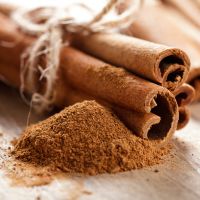The second leading cause of cancer deaths in the US, colorectal cancer is a progressive disease generally with poor prognosis. Consequently, scientists are exploring approaches that may prevent the disease. Previously, Georg Wondrak, from the University of Arizona (Arizona, USA) identified the ground bark of Cinnamomum aromaticum (cassia cinnamon) and Cinnamomum verum (Ceylon cinnamon), as rich dietary sources of cinnamaldehyde – an inducer of Nrf2 (nuclear factor-E2-related factor 2), a master regulator of the cellular antioxidant defense that represents a promising molecular target for colorectal cancer chemoprevention. Cinnamaldehyde is the compound that gives cinnamon as distinct flavor and smell. In the present study, the researchers added cinnamaldehyde to the diet of mice. Not only did the compound appear to protect the mice against colorectal cancer, the team also observed that the animals’ cells had acquired the ability to protect themselves against exposure to a carcinogen through detoxification and repair. The study authors submit that:”our data suggest feasibility of colorectal cancer suppression by dietary [cinnamaldehyde] … derived from the third most consumed spice in the world.”
Cinnamon Compound Curtails Cancer
Long M, Tao S, Rojo de la Vega M, Jiang T, Wen Q, Park SL, Zhang DD, Wondrak GT. “Nrf2-dependent suppression of azoxymethane/dextran sulfate sodium-induced colon carcinogenesis by the cinnamon-derived dietary factor cinnamaldehyde.” Cancer Prev Res (Phila). 2015 May;8(5):444-54.
RELATED ARTICLES




